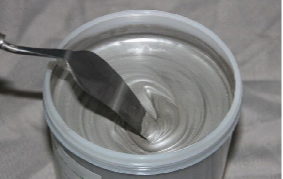Waterborne coating
Corrosion protection for automotive fasteners and key components
In recent years, China’s coating market has maintained steady growth, with wide applications across the automotive, industrial, and construction sectors.
As environmental regulations tighten and industry customers place greater emphasis on health and sustainability, water-based coatings have gradually become the mainstream trend.
Among them, water-based zinc-aluminum micro corrosion-protection coatings, used for automotive fasteners and key components, are leading the industry toward higher standards.
Green Upgrade: The Inevitable Choice for Industry Development
Against the backdrop of China’s strong push for environmental protection policies, traditional solvent-based anti-corrosion coatings are being gradually phased out, while low-pollution, low-VOC water-based coatings are experiencing rapid growth.
Unlike the architectural coatings market, which is more affected by real estate fluctuations, the automotive and industrial anti-corrosion sectors have shown greater resilience and growth potential.
In response to this trend, Junhe’s water-based zinc-aluminum micro coating has emerged as a standout solution.
With its environmentally friendly formulation and excellent corrosion resistance, it has gained wide recognition in the fastener surface protection field.
Outstanding Advantages of Water-Based Zinc-Aluminum Micro Coatings
Environmental Safety:
By replacing most organic solvents with water, VOC emissions are greatly reduced, creating a safer production environment that aligns with international environmental standards.
High Corrosion Resistance:
The coating’s zinc–aluminum flake structure forms a dense barrier, providing excellent salt spray resistance and long-term protection. It meets the demanding corrosion requirements of automotive components under complex operating conditions.
Excellent Process Adaptability:
When used with automated coating and sintering equipment, the film achieves uniform thickness and strong adhesion, enabling large-scale, standardized production. It ensures stable protection even in fine areas such as threads and edges.
Energy and Cost Efficiency:
The water-based system reduces solvent consumption through process optimization. Equipment cleaning requires only water, minimizing the use of cleaning agents and further lowering operational costs.
A key direction for industry upgrading
Although water-based coatings offer significant advantages, challenges remain in process control and equipment compatibility — such as requirements for coating environment and baking energy consumption. To address these issues, the industry is actively pursuing breakthroughs through equipment upgrades and process innovations. For example, the adoption of intelligent coating production lines and energy-efficient sintering furnaces is helping water-based zinc-aluminum coatings reduce energy consumption while maintaining high performance, thereby improving overall manufacturing standards.
Water-based coatings have become the dominant trend in the coatings industry. For corrosion protection of automotive fasteners and critical components, water-based zinc-aluminum micro-coatings not only align with the environmental direction but also deliver tangible value through excellent protection and strong process adaptability. As technologies and equipment continue to advance, these coatings are expected to play a greater role in broader industrial applications — truly setting the “new direction” for the coatings industry.
Post time: Oct-20-2025


